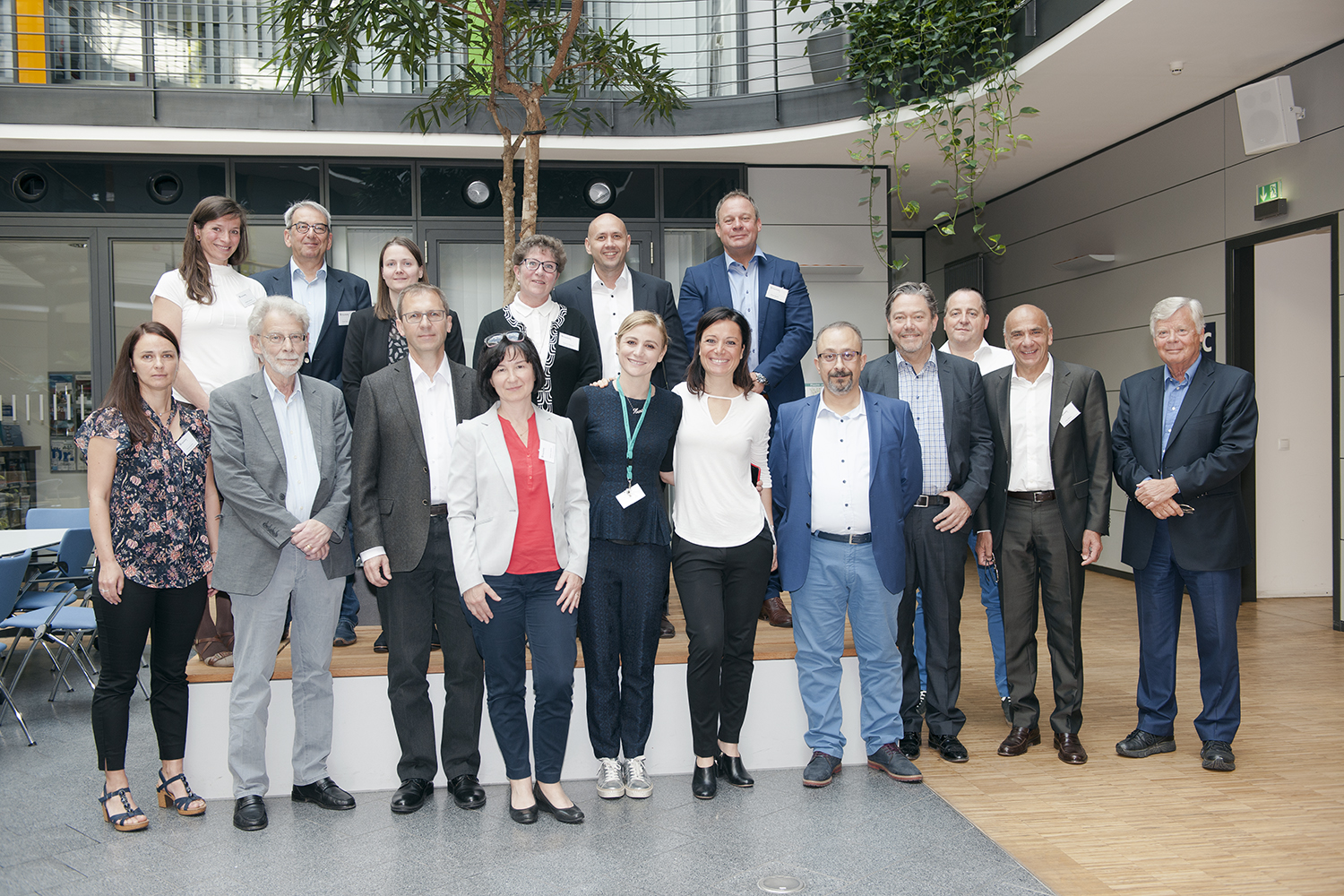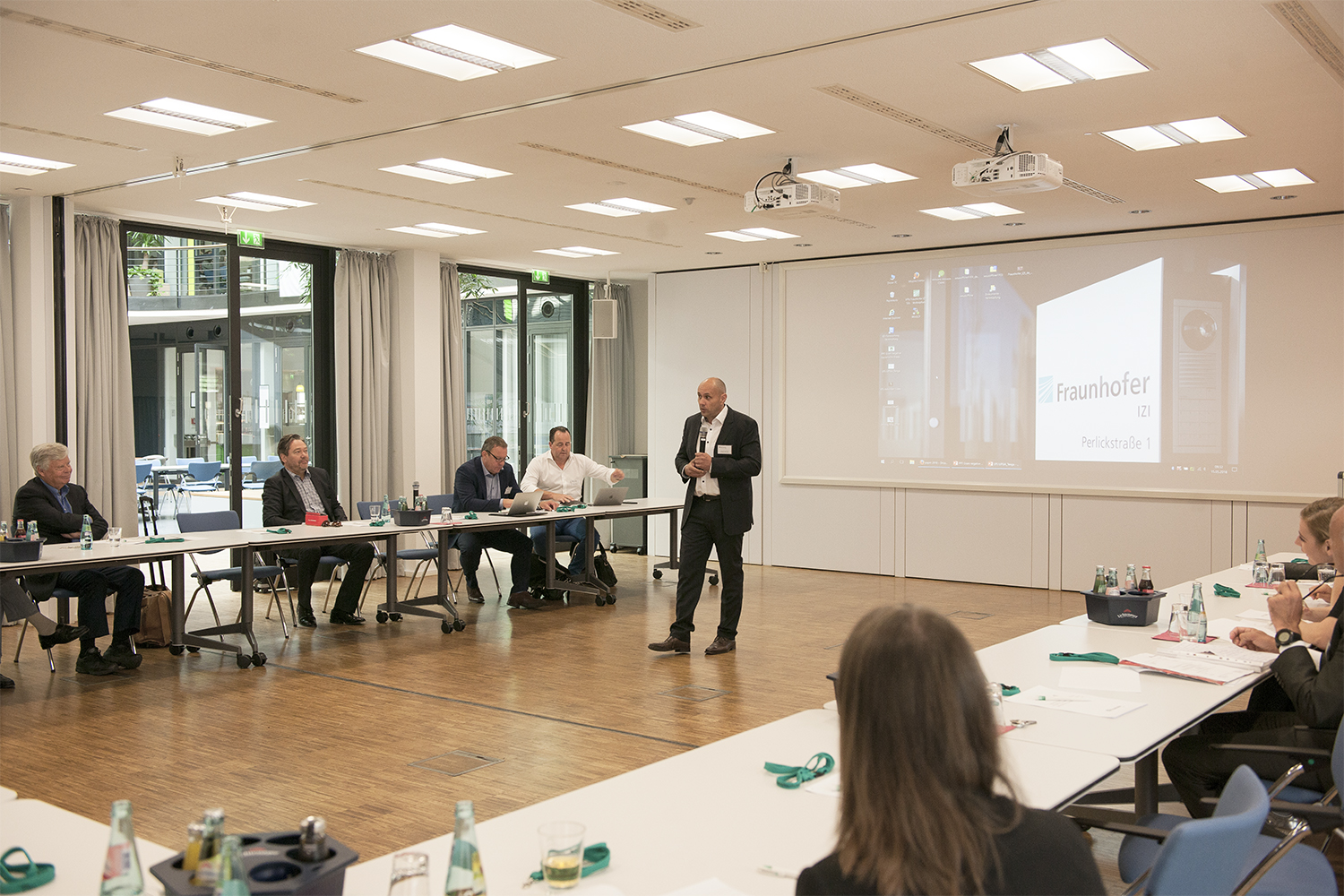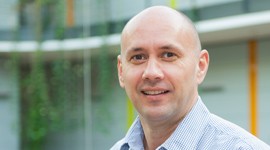Fraunhofer IZI steps up research to improve the treatment of infectious cardiovascular diseases
On 15 May 2018, international researchers and physicians gathered at Fraunhofer IZI to discuss new options in the treatment of infectious diseases affecting the cardiovascular system. The discussions focused in particular on adsorber systems, which wash out gram-negative bacteria using lipopolysaccharide (LPS) adsorbers in the blood.


All kinds of cardiovascular diseases are triggered or intensified by bacterial, viral or fungal infections. The extent and severity of these infections range from diseases affecting the vascular system to heart valves and even the heart muscle itself. Above all, bacterial infections prove challenging when it comes to treatment as many germs are able to hide within the tissue and even in cells. Bacteria and/or bacterial components that circulate in the bloodstream are responsible for a high number of disease-specific complications. LPS adsorbers are already used in cases where the surface molecules of gram-negative bacteria circulate in the blood. However, the extent to which these adsorber systems are able to influence disease progression in the long run is not sufficiently clear at present.
As part of the Fraunhofer event, therapeutic approaches already used in patients with heart valve infections and also new areas of indication were therefore discussed and their transfer into practice assessed.
The physicians and scientists want to eliminate disease-causing pathogens from the blood and thus deactivate the key trigger of serious infections.
One procedure that holds a great deal of potential here is the adsorption of lipopolysaccharides (LPS) using a filter. LPSs form part of the cell membrane of gram-negative bacteria and have a toxic effect, just like free LPS. This gives rise to immunological reactions that affect the entire organism. Even the heart is not spared from these types of infection.
With this in mind, globally renowned physicians and researchers from a range of disciplines (cardiac surgery, cardiology, anesthesia, immunology) and countries (Germany, Sweden, Poland, Italy and Turkey) came together to talk about their research findings for the first time. Professor Andreas Oberbach from the Fraunhofer Institute for Cell Therapy and Immunology IZI and Professor Christian Hagl, Head of the Cardiac Surgery Clinic at Ludwig Maximilian University of Munich (LMU), led the discussion.
The event focused in particular on the collaboration between clinical partners, fundamental scientific aspects and industrial feasibility. Swedish company Alteco Medical AB and German medical technology company Cormed have set themselves up to support this overarching therapeutic approach in the long term. With its international expertise in the field of immunology, the Leipzig-based Fraunhofer institute also plays a central role as a partner for fundamental scientific analyses and diagnostics development.
“We want to find out more about the protective potential held by the LPS adsorbers as part of a new research project,” summarized Professor Andreas Oberbach, Head of the CariOmics Unit at Fraunhofer IZI and physician at the LMU Cardiac Surgery Clinic.
Together with the LMU and industry partners Alteco Medical AB and Cormed Medizintechnik GmbH & Co.KG, Oberbach and Hagl hope to conduct a randomized clinical trial involving LPS adsorbers before the end of the year.
